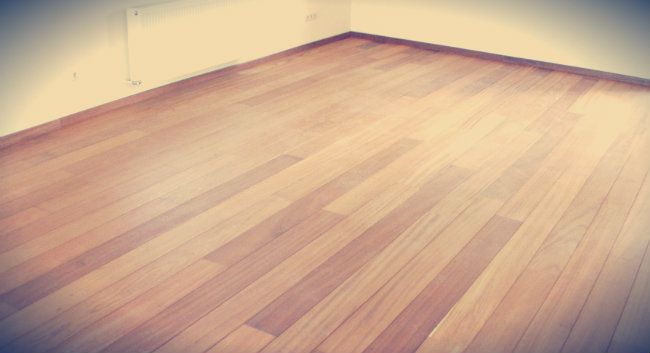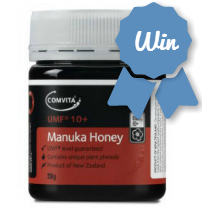
Protect your flooring from unwanted damage
If you are carrying out construction work on a residential home, one of your biggest priorities will be to protect the existing fixtures and fittings and that means the flooring.
You might even be construction a house from scratch or completely renovating a room, and have laid the floor before the rest of the construction is completed or appliances installed.
This can leave a tricky dilemma: how to complete the rest of the work without damaging the floor below.
Many of the solutions used in the past have been flimsy at best or at worst, damaged the flooring themselves! However, technology has advanced to provide some excellent materials which can help keep flooring in tip top condition whilst the rest of the construction work is carried out.
With the help of M Laurier & Sons Ltd we take a closer look at what’s available.
Traditional solutions
Any construction worker worth their salt will make every attempt to protect existing fixtures and fitting but the materials available haven’t always been a great help.
Rosin paper or construction paper are both traditional methods used to help protect not just flooring but also work surfaces and walls.
Whilst it would appear to offer an initial layer of protection, this kind of sheeting offers very little value. Not only is it flimsy and tears easily but it isn’t waterproof and will become soggy and sticky when wet, and even worse, if you use red rosin paper the colour can leach through onto the floor. Disastrous!
Sticky-back plastic film is a possible solution but you could spend days trying to scrub the sticky residue off the floor and never quite get rid of it all.
The other disadvantage to these solutions is that they offer no cushioning against items that fall; it’s not just dust and dirt they need to protect against. All it takes is one steel-capped construction boot to make heavy contact with the floor and there’s likely to be a scrape, scratch or even a dent.
Some construction workers attempt to circumnavigate the problem by laying down paper and then adding plywood over the top. This offers some protection but the solution is costly and inflexible, and difficult to lie accurately.
The good news is that there are now far superior flooring protection products which can make the job of preventing damage to flooring, fixtures and fittings far simpler. And as the saying goes, a pinch of prevention is better than a pound of cure so why take the risk and go without?
Corri Board
One of the most versatile types of material used in the construction industry, Corriboards are used for a range of different tasks including acting as a permanent barrier against concrete.
Available in black or translucent, the latter being ideal if you want to see the surface underneath, Corriboard is a ribbed polypropylene extruded board which utilises the latest polymer technology.
Corriboard is a strange contradiction: very flexible and easy to cut, so much so that any type of household retractable blade will slice through it without difficulty, Corriboard also offers incredible strength too. Corriboard can be bent around corners with ease, enabling you to perfectly protect those vulnerable parts of the wall and flooring and can be cut to fit any shape with ease.
But the ribbing and double skin helps to provide the Corriboard with extreme strength, and despite it being easy to handle, it is also very durable, tough and waterproof.
Corriboard is ideal for all surfaces including wooden floors, concrete, tiles and vinyl as well as being suitable for use on countertops, cabinets and walls too.
The polypropylene construction provides a cushion against impact as well as protection against dust, dirt and grime and won’t leave any marks on the surface underneath. It is waterproof and far stronger than simple corrugated cardboard and is resistant to tears and punctures.
Corriboard is also available in a flame retardant version, manufactured to LPS 1207.
Antimar
Another type of polymer technology floor protection, Antimar is a purpose-made type of temporary floor protection sheeting which is highly visible and perfect for use in the construction industry.
Bright yellow in colour, the textured Antimar flooring has an anti-slip surface, making it a great choice of protection sheeting for areas where there could be spillages or moisture present.
With a wipe-clean surface, it’s extremely durable and strong enough to last for the entire project and beyond. It’s also impervious to punctures and tears as well as being water resistant too.
Antimar comes with the practicalities considered, delivered in small compact rolls which can simply be folded out on site. This makes laying protective flooring on difficult areas such as stairs a far easier job.
Antimar comes with impressive customer testimonials, having been approved for use by the Ministry of Defence, Civil Aviation Authority and Rolls Royce Marine.
Made from bright yellow embossed polythene, Antimar has long been successfully used in the construction industry and meets the LPS 1207 certification standards.
Despite its bright colour, it can be custom printed if you desire. Next day delivery is possible but custom print jobs may take longer.
W.R Protection Board
Also known as fibre board, this type of floor protection is heavy duty yet easy to get in place and durable enough to last until construction has been completed.
A bonded, water resistant type of fibre board, its qualities allow new flooring to continue to cure whilst being protected because of its unique moisture and vapour release features.
With the ability to get it in place quickly, whilst remaining flat whilst being used, fibre board is a popular choice for floor protection in the construction industry.

